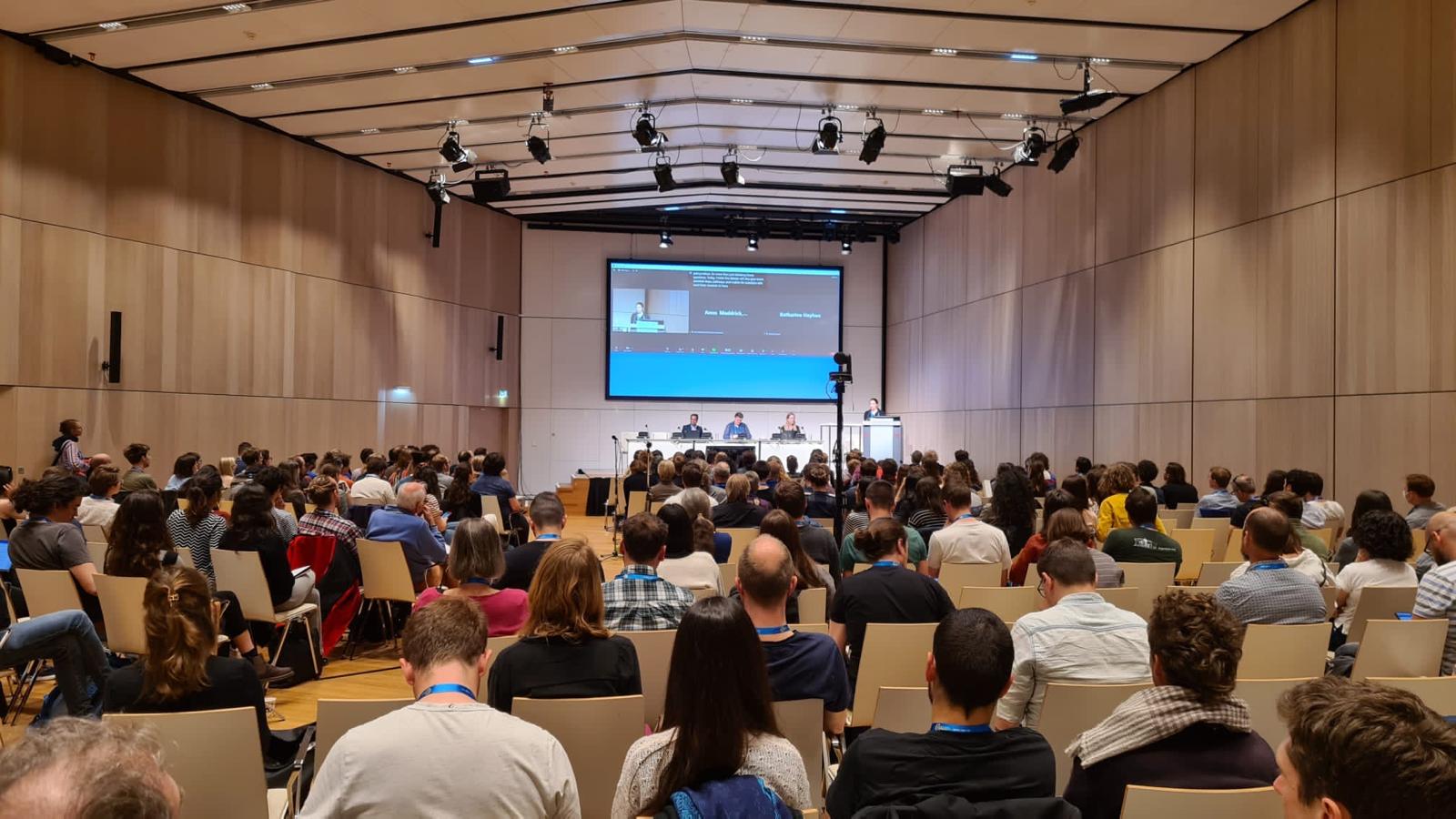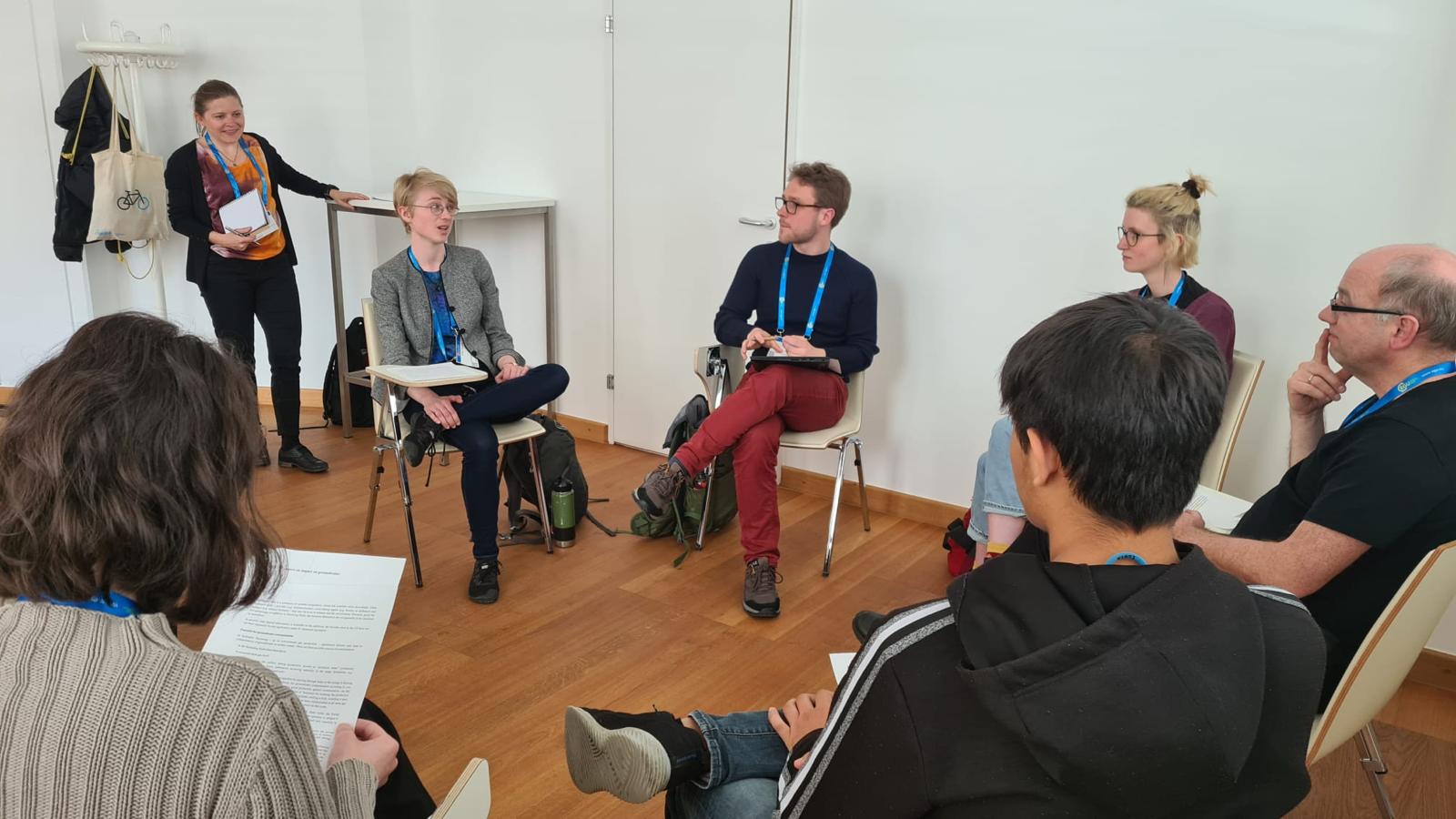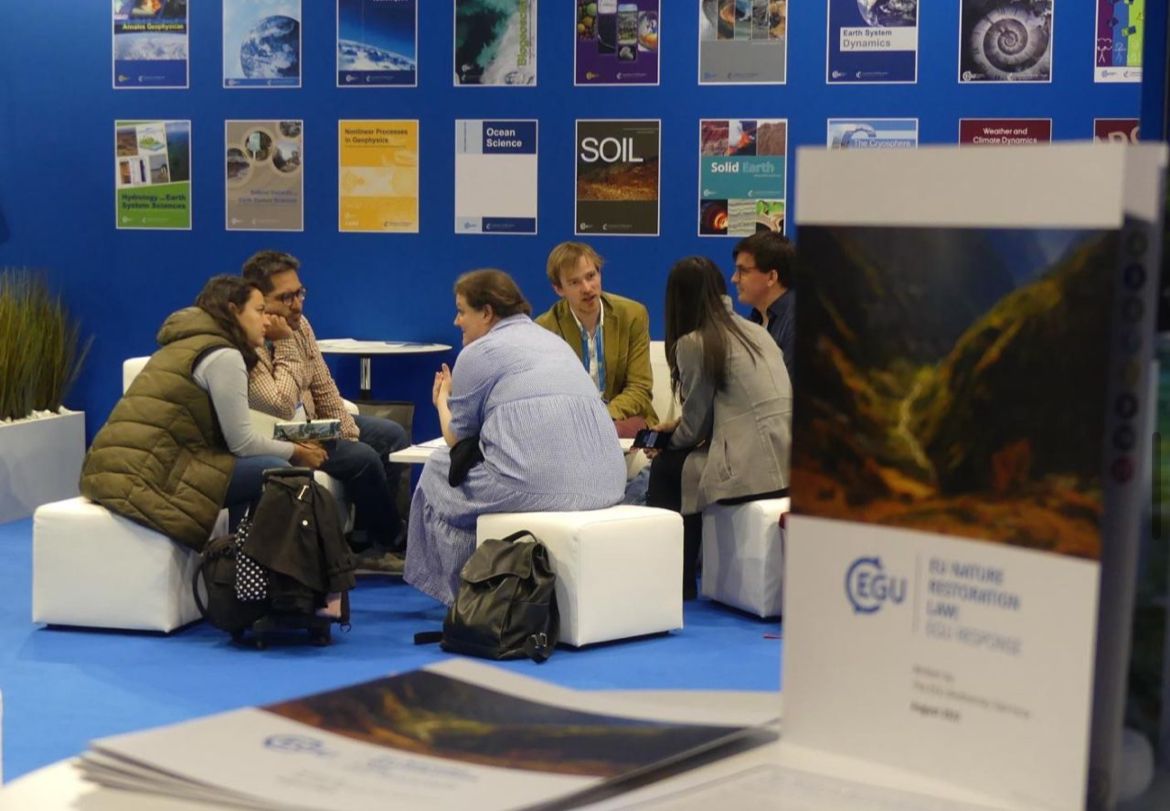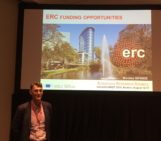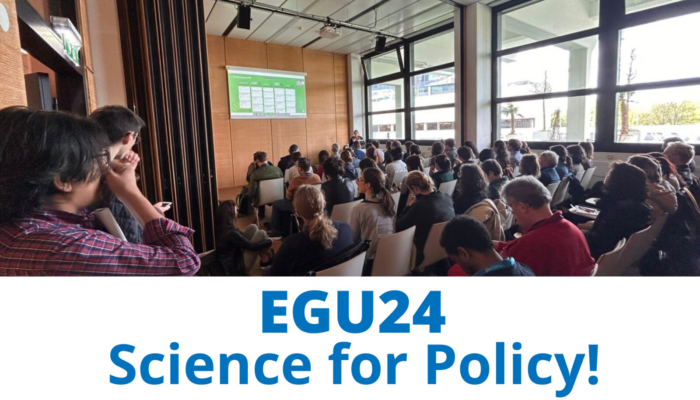
Each year, the EGU General Assembly hosts a wide range of scientific and skills-based sessions as that you can participate in to learn about new research, expand your network, diversify your expertise, and develop new skills! This includes an array of sessions that focus on science for policy, outlining how researchers can start engaging in policymaking processes, connect with decision makers, and have a policy impact! This blog post will highlight some of the science for policy sessions on offer and outline how you can engage with policymakers throughout the week. This year, EGU24 participants can also find all of the science for policy sessions grouped together in the programme under the “sessions of special interest for Policy”!
Union-wide session: Exploring Key Scientific for Policy Topics
Union-wide sessions, including both Union Symposium and Great Debates, provide a platform for topics that are cutting-edge, current, and of interest to a broad range of the Earth, environmental, planetary and space sciences. This year, there are a number of union-wide sessions featuring on science for policy related topics!
The EU Critical Raw Materials Act – how geoscientists can directly inform European policy and regulation
Monday 15 April, 10:45–12:30 in Room E1
In 2023, the European Commission published the Critical Raw Materials Act which aims to ensure the EU’s access to a secure and sustainable supply of raw materials. This Union Symposium aims to identify the role of geoscientists in achieving these aims.
Unleashing your potential as an Early-Career researcher: bridging the research-policy divide
Monday 15 April, 14:00–15:45 in Room E1
This Great Debate will explore the role that early career researchers play in bridging the gap between scientific knowledge and policy implementation, the challenges they face and how they can be overcome.
How can geoscience unions and societies effectively integrate science into global policy decisions?
Tuesday 16 April, 08:30–10:15 in Room E1
This session will explore the challenges and successes geoscience unions and societies have experience by engaging on the science-policy interface. It will debate whether these organisations are fulfilling the expectations of the communities they represent and ask how they could expand and evolve the science-policy service that they provide.
If informing is not enough, how should scientists engage to accelerate the social transformation required by climate change and biodiversity collapse?
Friday 19 April, 14:00–15:45 in Room E1
This session will debate the how researchers should engage to ensure that science is used effectively by policymakers. The panel discuss will ask whether simply informing policymakers is enough or if researchers need to enter the political arena.
Short Courses: Building your science for policy skillset
Rather than focusing on a specific research area or scientific theme, Short Courses provide participants with information, skills, and abilities that support researchers in a specific area of their work. They’re often run in a more interactive and flexible format, providing participants with more opportunities to engage and ask questions! This year there will be a number of short courses that provide EGU24 participants with the practical knowledge and skills they need to start engaging in policymaking..
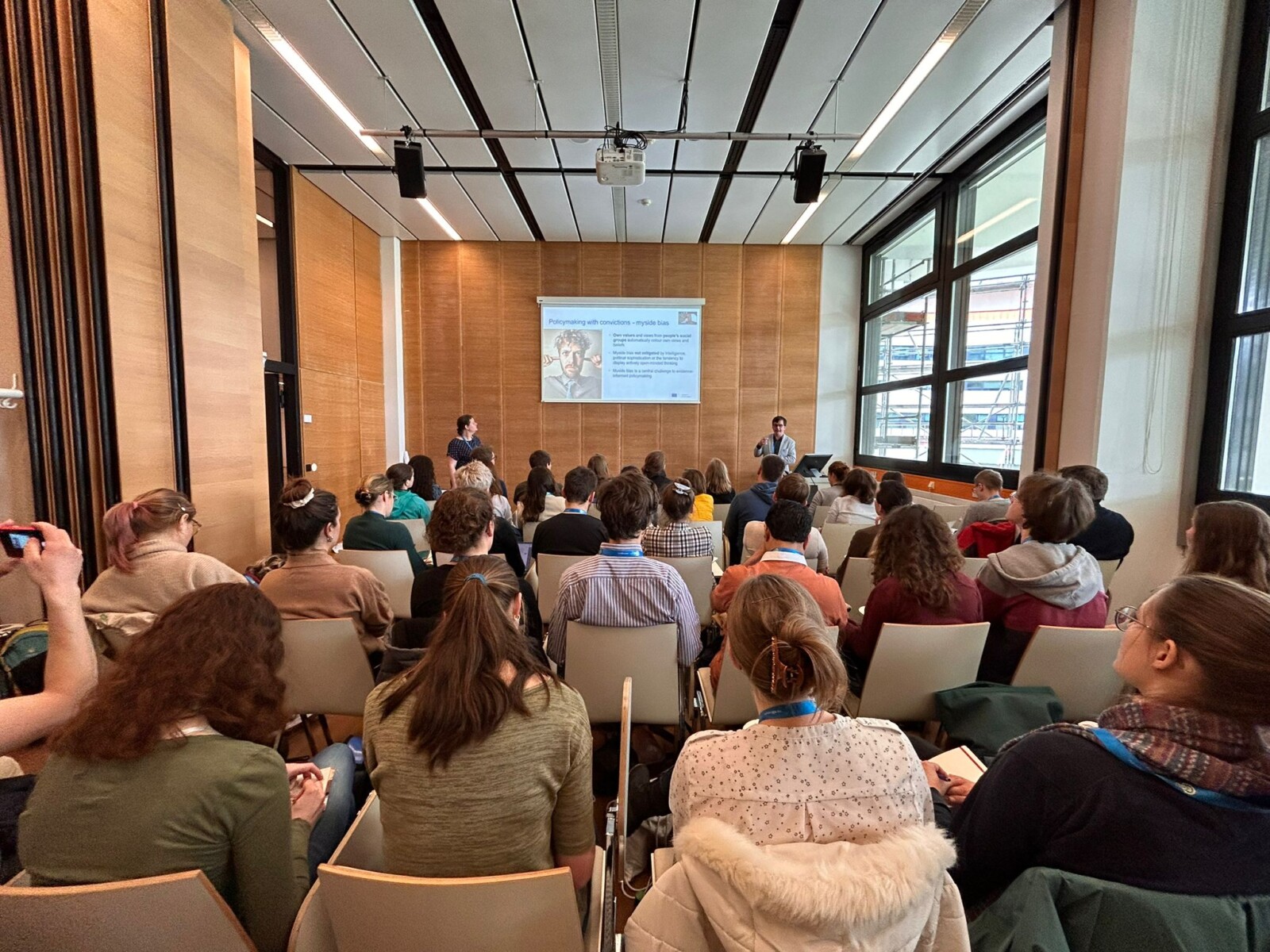
EGU23 Short Course, Beyond SciComm 101: what is meaningful & ethical communication when it comes to the climate crisis?
An introduction to science for policy
Monday 15 April, 10:45–12:30 in Room -2.85/86
This session will provide an introduction into some key ‘science for policy’ themes and provide specific details about when and how scientists can engage with policy to increase the impact of their efforts
Science for policy: Critical skills for policy engagement
Tuesday 16 April, 10:45–12:30 in Room -2.85/86
This Short Course will introduce participants to the 27 skills outlined in the Science for Policy Competence Framework and outline how researchers can develop and improve selected skills.
How to enhance natural hazard scientists’ contribution to disaster risk reduction
Wednesday 17 April, 14:00–15:45 in Room -2.85/86
This course aims to support researchers in planning and developing sustainable and resilient communities. It will also explore the (geo)science-policy-practice interface through the lens of disaster risk reduction.
Splinter Meetings: join in on the discussion
Splinter are hosted in a more intimate setting with space for up to 30 participants. They often take the form of a round table with the opportunities for all participants to participate actively and engage in the discussion.
How to have your say on European Policymaking: Understanding and Answering EU Consultations
Tuesday 16 April, 10:45–12:30 in Room 2.83
European Commission consultations aim to collect expert input and feedback on their legislative proposals. This Splinter Meeting will provide participants with all the information that they need to start engaging with this processes.
Shaping Your Science-Policy Career: Pathways and Opportunities
Tuesday 16 April, 14:00–15:45 in Room 2.83
Join this session to meet those working across the science-policy spectrum, learn about how they developed the necessary skills, and hear their tips are for those who want to take the next step in their own career!
Pitching your research to a policymaker
Tuesday 16 April, 08:30–10:15 in Room 2.42
This session will give some participants the opportunity to present the key aspects of their research to a panel of policymakers and those working on the science-policy interface! The panel will then give their feedback and provide insights on areas that can improve these pitches.
Creating science for policy initiatives within your own institutions
Wednesday 17 April, 10:45–12:30 in Room 2.83
This session will introduce various initiatives and outline how they were created before encouraging participants to share their own experiences and brainstorm potential methods of creating science-policy spaces and dialogues within their own scientific organisations and research institutes.
How to write a policy brief
Thursday 18 April, 10:45–12:30 in Room 2.83
This Splinter Meeting will be run in the form of an interactive workshop. Participants will be provided with tips and tools to create their own policy brief as well as interactive exercises to work on with other attendees and the session’s leaders.
Scientific sessions: finding a thematic focus
This year, there are also a number of scientific sessions that focus on building bridges between science and policy within a particular scientific area. Some of these sessions are listed below but you can find more in the in the policy-section of the programme!
Elevating practice in the science-policy-practice nexus: highlights from operationalization of hydrological research and interdisciplinary collaborations
Thursday 18 April, 16:15–18:00 in PICO spot A
This session will highlight interdisciplinary collaborations and existing hydrology initiatives, organisations, and networks that offer modalities and frameworks aimed at connecting scientists, policymakers, practitioners, and other stakeholders.
Moving beyond research-as-usual: Exploring and assessing the role of geoscientists in the face of the climate and ecological emergencies
Oral session: Monday 15 April, 08:30–12:30 in Room 0.15, Posters session: Tuesday 16 April, 10:45–12:30 in Hall X1
This session aims to highlight methods that researchers can use to engage with civil society, ensure the research is considered in the policymaking process, and contribute to and assist legal actions against private or public entities.
Science Policy Interface: Shaping Debates and building bridges
Thursday 18 April, 16:15–18:00 in PICO spot 2
This session aims to bridge that gap by highlighting success stories from scientists who have engaged in policy and made critical societal impacts – either on a European, national, or local level – across different scientific disciplines and science officers who have facilitated successful science-policy-dialogues.
EGU Science for Policy Help Desk
12:00 – 13:00 everyday at the EGU Booth
Throughout EGU23, in-person participants will be able to drop by the EGU’s Science for Policy Help Desk at the EGU Booth every day from 12:00-13:00 to further discuss their questions and how they can more share their expertise more effectively!
The EGU is always an exciting week with a lot to see and do! But if you’re interested in policy and sharing your expertise with a wider audience, make sure you add some policy-related sessions to your schedule! Looking forward to seeing you there!

